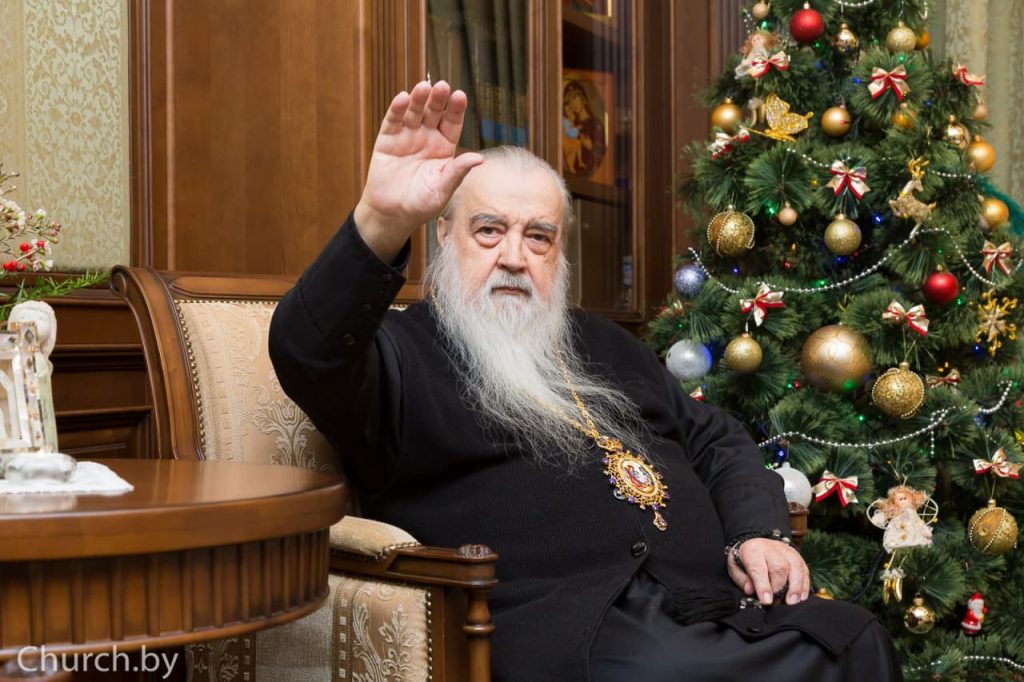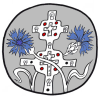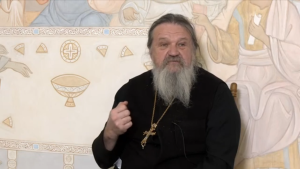Anniversary of the Death of Metropolitan Filaret (Vakhromeev)

Аўтар

Арганізацыя"Хрысціянская візія"
Міжканфесійнае аб’яднанне беларускіх хрысціян, створанае на хвалі мірных пратэстаў 2020 г.
Інфармацыя пра «Хрысціянскую візію» Аб'ява аб заснаванні групы Місія групы Іншыя артыкулы

 [simple-author-box]
A year has passed since the repose of the first Patriarchal Exarch of All Belarus, Metropolitan Filaret (Vakhromeev). He led the Orthodox Church in Belarus for 35 years, his personal convictions predetermined the progressive image of the Belarusian Orthodox Church (BOC) compared to the Russian Orthodox Church at large.
His repose symbolically marked the end of the entire era in the history of Belarus. A month earlier, the first prime minister of independent Belarus, Vyacheslav Kebich, passed away. Soon after, Tadeusz Kondrusiewicz, the one who was at the beginning of the revival of the Catholic structures in Belarus in 1989-1991, was dismissed. And finally, Metropolitan Filaret died on 12 January 2021. At that moment, Belarus was increasingly moving from authoritarianism to totalitarianism.
With the death of the renowned hierarch, his achievements started disappearing too. Former “Minister of Foreign Affairs of the Moscow Patriarchate” and former Exarch of Western Europe, Filaret had a certain sentiment towards the west, he was open-minded and without phobias to Catholics and Protestants. Even the Hero of Belarus award which Metropolitan Filaret received in 2006 was in recognition of his “contribution in the development of inter-confessional dialogue.” Unlike Metropolitan Filaret who frequented international forums organically embodying the modern “Russian” theology there, the current Metropolitan Veniamin is an isolationist seeking to minimise all international and ecumenical ties of the BOC.
The theological educational institutions which were reopened or created from scratch under Filaret are rapidly losing in the quality of the educational process: education is not among the priorities of the current Exarchate’s leadership. The latter values prayer, humility and obedience above all. Filaret strongly encouraged sending students for studies in foreign theological centres: Rome, Tübingen, Chambésy, etc.; it’s out of the question nowadays.
Many charitable initiatives have been emasculated. For example, supporting a project for victims of domestic violence is impossible for the current BOC hierarchy. It was still possible in 2012 during the “late” Filaret’s leadership.
While Filaret himself was a world-class figure not only for Orthodoxy but for Christianity as a whole, today’s BOC is an insignificant province of Moscow, both ideologically and theologically.
At the same time, the line between the Church and the state has blurred further. Previously, Filaret and the BOC could, albeit inconsistently, distance themselves from the authorities. For example, they allowed themselves to advocate the abolition of capital punishment. Today, there are no mo attempts of “symphony” in relations, but rather complete domination of the regime over the Church, even if it harms the identity of the Church as a God-human creation and its interests as an earthly community.
Perhaps, those who have followed Filaret did not have any intention of destroying the legacy of the late Metropolitan; they simply “do not know what they are doing” (Luke 23:34). That was the case, for example, when the hierarchs of the BOC went to the Metropolitan to congratulate him with his name day on 14 December 2020. Following the event, he was hospitalised with Covid-19 and died.
Of course, many of the current problems of BOC date back to the time of Metropolitan Filaret. His current successor, Veniamin, is a pupil of the late hierarch. Instead of building on what has been created by Metropolitan Filaret, the new generation of hierarchs, however, destroy what they fail to understand.
[simple-author-box]
A year has passed since the repose of the first Patriarchal Exarch of All Belarus, Metropolitan Filaret (Vakhromeev). He led the Orthodox Church in Belarus for 35 years, his personal convictions predetermined the progressive image of the Belarusian Orthodox Church (BOC) compared to the Russian Orthodox Church at large.
His repose symbolically marked the end of the entire era in the history of Belarus. A month earlier, the first prime minister of independent Belarus, Vyacheslav Kebich, passed away. Soon after, Tadeusz Kondrusiewicz, the one who was at the beginning of the revival of the Catholic structures in Belarus in 1989-1991, was dismissed. And finally, Metropolitan Filaret died on 12 January 2021. At that moment, Belarus was increasingly moving from authoritarianism to totalitarianism.
With the death of the renowned hierarch, his achievements started disappearing too. Former “Minister of Foreign Affairs of the Moscow Patriarchate” and former Exarch of Western Europe, Filaret had a certain sentiment towards the west, he was open-minded and without phobias to Catholics and Protestants. Even the Hero of Belarus award which Metropolitan Filaret received in 2006 was in recognition of his “contribution in the development of inter-confessional dialogue.” Unlike Metropolitan Filaret who frequented international forums organically embodying the modern “Russian” theology there, the current Metropolitan Veniamin is an isolationist seeking to minimise all international and ecumenical ties of the BOC.
The theological educational institutions which were reopened or created from scratch under Filaret are rapidly losing in the quality of the educational process: education is not among the priorities of the current Exarchate’s leadership. The latter values prayer, humility and obedience above all. Filaret strongly encouraged sending students for studies in foreign theological centres: Rome, Tübingen, Chambésy, etc.; it’s out of the question nowadays.
Many charitable initiatives have been emasculated. For example, supporting a project for victims of domestic violence is impossible for the current BOC hierarchy. It was still possible in 2012 during the “late” Filaret’s leadership.
While Filaret himself was a world-class figure not only for Orthodoxy but for Christianity as a whole, today’s BOC is an insignificant province of Moscow, both ideologically and theologically.
At the same time, the line between the Church and the state has blurred further. Previously, Filaret and the BOC could, albeit inconsistently, distance themselves from the authorities. For example, they allowed themselves to advocate the abolition of capital punishment. Today, there are no mo attempts of “symphony” in relations, but rather complete domination of the regime over the Church, even if it harms the identity of the Church as a God-human creation and its interests as an earthly community.
Perhaps, those who have followed Filaret did not have any intention of destroying the legacy of the late Metropolitan; they simply “do not know what they are doing” (Luke 23:34). That was the case, for example, when the hierarchs of the BOC went to the Metropolitan to congratulate him with his name day on 14 December 2020. Following the event, he was hospitalised with Covid-19 and died.
Of course, many of the current problems of BOC date back to the time of Metropolitan Filaret. His current successor, Veniamin, is a pupil of the late hierarch. Instead of building on what has been created by Metropolitan Filaret, the new generation of hierarchs, however, destroy what they fail to understand.








